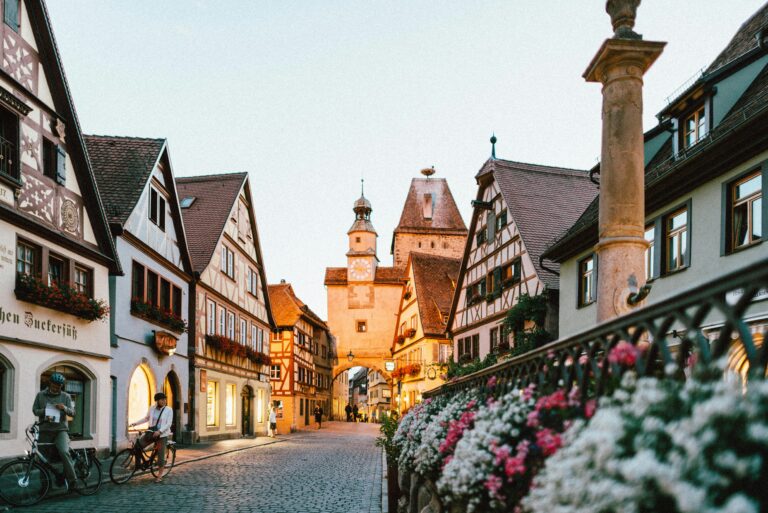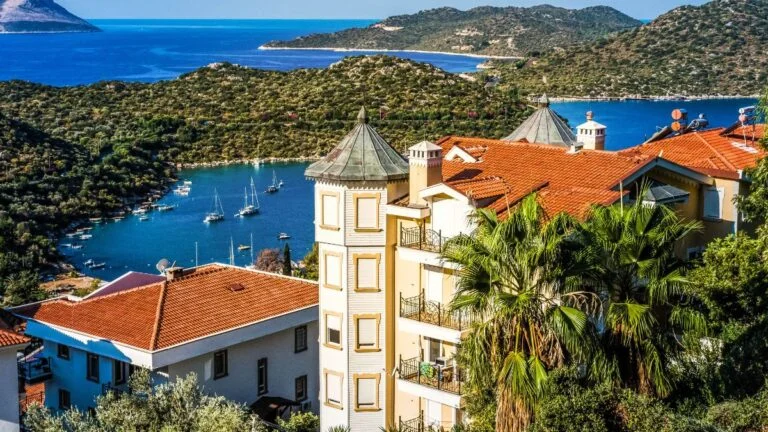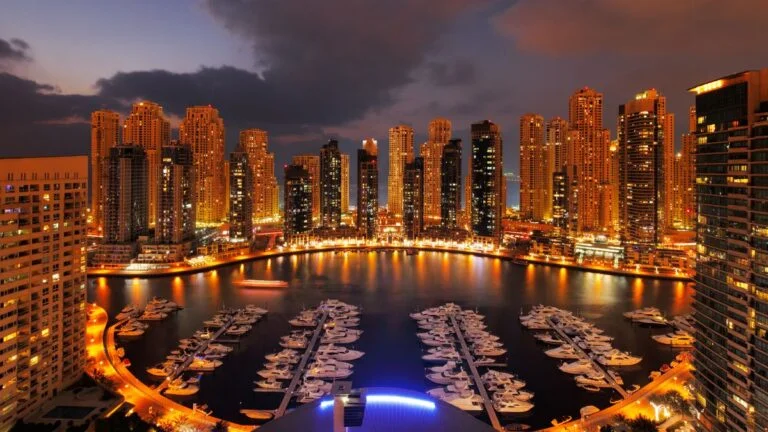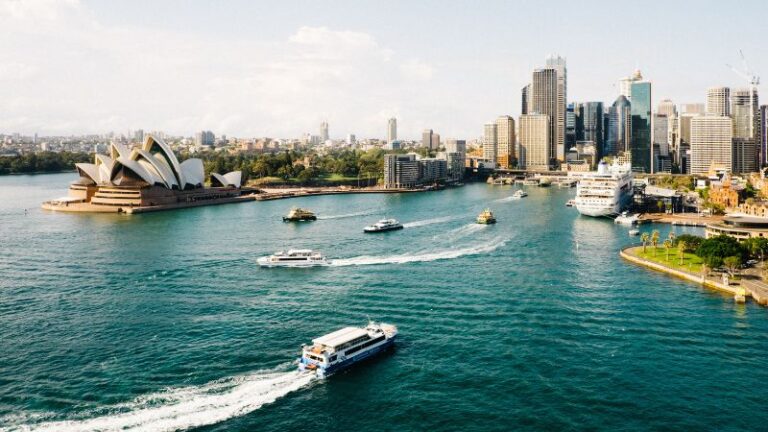50 Facts About Brazil You Need to Know Before Traveling There
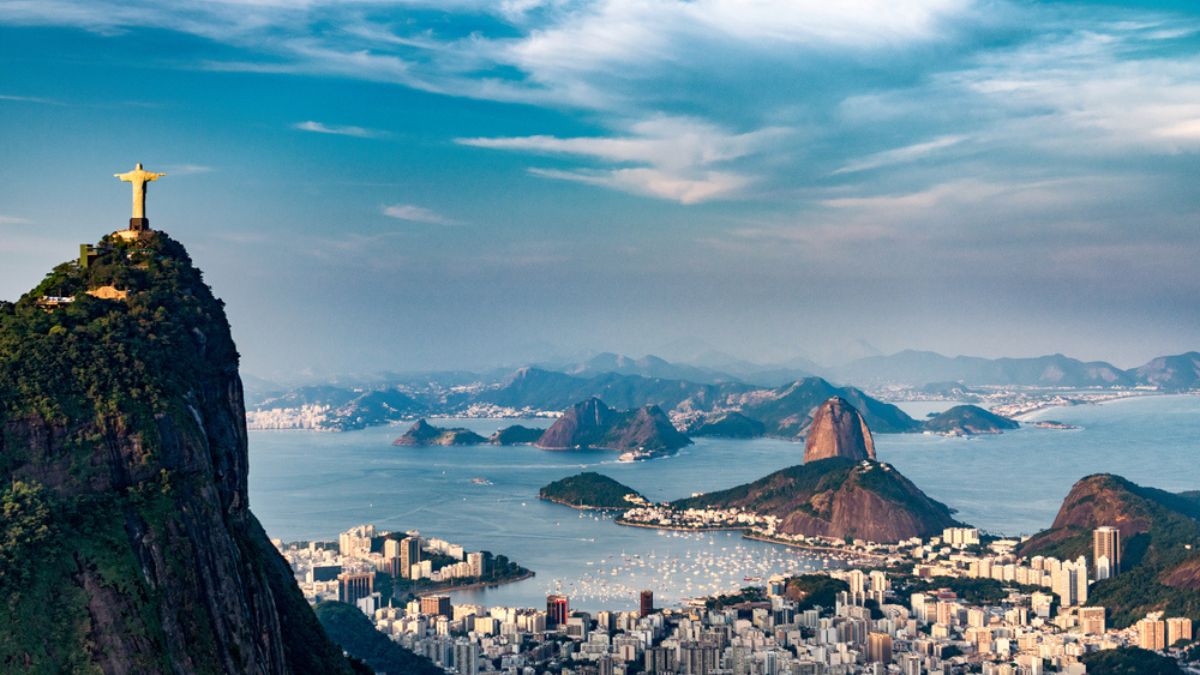
As participants in Amazon Associates and other programs, we earn from qualifying purchases. This comes at no additional cost to you. For more details, see our Affiliate Disclosure.
If you’re planning a trip to Brazil, it’s good to go beyond the surface of samba and soccer. This country’s vibrant culture and breathtaking landscapes are just the beginning. Each region of Brazil has its own unique flavor, from the bustling streets of São Paulo to the lush rainforests of the Amazon. Whether you’re a beach lover, an adventure seeker, or a culture enthusiast, knowing these fun facts can help you make the most of your Brazilian journey.
Geography of Brazil
Brazil is a vast country, the largest in South America, stretching from the Amazon Basin in the north to the vineyards and massive Iguaçu Falls in the south. It covers nearly half of South America, encompassing a variety of geographical landscapes, from mountains and rolling hills to plains and scrublands.
The Brazilian Language
Portuguese is the official language of Brazil, making it the largest Portuguese-speaking country in the world. Unlike its neighbors who speak Spanish, Brazilian Portuguese has a distinct rhythm and tone influenced by native languages and immigrant tongues, such as Italian, German, and Japanese.
Brazilian Cuisine Diversity
Brazilian cuisine is as diverse as its geography, influenced by a mix of European, Indigenous, and African ingredients. Each region adds its own flavor; from the seafood-heavy dishes of the northeast to the meat-rich barbecues of the south, Brazilian food is a vibrant celebration of national diversity.
History of Brazil
Brazil’s history is a blend of Indigenous cultures, Portuguese colonization, and African influences through slavery. It became a Portuguese colony in the 16th century until 1822, when it declared independence. The country’s history is marked by periods of economic boom and political instability.
Brazil’s Contribution to Art
Brazilian art has evolved from Indigenous decorations and Portuguese baroque styles to embrace modernist movements in the 20th century. Artists like Tarsila do Amaral and Candido Portinari have been instrumental in putting Brazilian art on the global map, reflecting the country’s colorful and diverse cultural heritage.
Celebrations and Festivals
Brazil is famous for its festive spirit, best exemplified by the annual Carnival. This iconic festival, held before Lent, features parades, music, and dancing from samba schools, particularly in Rio de Janeiro. Other festivals, such as São João, celebrate the country’s diverse traditions and history.
The Fashion Scene
Brazil’s fashion scene is vibrant and innovative, known for its beach fashion and denim. The country has produced world-renowned models and designers who are influential in international fashion circles, highlighting Brazil’s flair for vibrant and tropical-inspired designs.
Famous Landmarks
Brazil boasts numerous iconic landmarks such as Christ the Redeemer in Rio de Janeiro, the Amazon River, and Salvador’s historic Pelourinho district. These landmarks draw millions of tourists annually and are symbols of Brazil’s rich cultural and natural heritage.
Climate Variations Across Brazil
Brazil’s climate varies greatly from hot and humid rainforests in the Amazon to more temperate climates in the south. The vast size of the country ensures a variety of weather conditions, with significant rainfall in the forested regions and drier conditions in the plains.
Coffee Culture in Brazil
Brazil is the world’s largest coffee producer, and its culture revolves around the beverage. Coffee is a daily ritual and social event, served strong and sweet throughout the day in homes, workplaces, and cafes.
Family Life in Brazil
Family is central to Brazilian life, often involving large, multigenerational gatherings and strong ties between extended family members. Brazilians emphasize togetherness, hospitality, and the enjoyment of life, which are integral to their social fabric.
Popular Sports
While football is the most popular sport in Brazil, other sports like volleyball, basketball, and martial arts also have strong followings. The country has produced top athletes in various disciplines, making it a vibrant sports nation.
Transportation Tips
Brazil’s size makes air travel essential for long-distance trips. Major cities also offer extensive bus services, which are an affordable option for getting around. In urban areas, metros and taxis are common, but traffic can be a challenge.
National Holidays
Brazil celebrates many national holidays, including Independence Day on September 7 and Republic Day on November 15. These holidays are marked with public celebrations, parades, and patriotic displays.
The Brazilian Economy
Brazil’s economy is the largest in Latin America, with agriculture, mining, and manufacturing at its core. It is also a major exporter of coffee, soybeans, beef, and iron ore. Despite its resources, Brazil faces challenges such as income inequality and economic volatility.
Natural Wonders
Brazil is home to the Amazon Rainforest, the Pantanal, and the Atlantic Forest, each a biodiversity hotspot. The country’s commitment to conservation is crucial for protecting its unique environments and the many species that reside within them.
Brazilian Film Industry
The Brazilian film industry, or Cinema Novo, gained prominence in the 1960s and 1970s by focusing on social issues with a distinctly Brazilian touch. Contemporary Brazilian cinema continues to earn international acclaim by exploring complex themes through both documentary and narrative forms.
Outdoor Adventures
Brazil’s diverse landscapes offer endless opportunities for outdoor adventures. From hiking and bird watching in the national parks to surfing and paragliding along the coast, the country is a playground for nature lovers and thrill-seekers alike.
Vineyards of Brazil
The wine regions in southern Brazil, especially in Rio Grande do Sul, produce award-winning wines, recognized for their quality and uniqueness. The temperate climate and rich soil create ideal conditions for vineyards, which are becoming a significant part of Brazil’s rural economy.
Shopping Destinations
Brazil offers varied shopping experiences, from modern malls in São Paulo to traditional markets in Bahia. Local crafts, Brazilian fashion, and regional foods are some of the items that make shopping here a unique experience.
Education System
Brazil’s education system faces challenges, including disparities in quality and access, particularly in rural areas. However, numerous public and private schools across the country strive to improve educational standards and outcomes for all Brazilians.
Brazilian Inventors
Brazilian inventors have made significant contributions in various fields. Innovations include the airplane by Santos-Dumont, the radio broadcaster by Landell de Moura, and other lesser-known but impactful inventions in medicine and agriculture.
Literature of Brazil
Brazilian literature reflects the country’s complex history and rich oral traditions. Iconic writers like Machado de Assis and contemporary authors such as Paulo Coelho have gained international fame, offering insights into Brazilian society and psychology through their works.
Stunning Beaches
From the famous Copacabana in Rio de Janeiro to the remote sands of Fernando de Noronha, Brazil’s beaches are diverse and breathtaking. They are places for sports, relaxation, and annual celebrations, integral to Brazilian life.
Music and Dance
Brazilian music and dance, including samba, bossa nova, and forró, are integral to the national identity. Music festivals and dance schools across the country celebrate this vibrant part of Brazilian culture.
Healthcare Overview
Brazil’s healthcare system includes a large network of public hospitals and clinics providing free care to citizens. Challenges remain in terms of access and quality, especially in rural and underserved areas.
Traditional Games
Traditional games, such as capoeira and peteca, have both historical and cultural significance in Brazil. These games, which blend physical activity with dance and music, are an important part of local festivals and daily life.
Religious Practices
Brazil is predominantly Catholic, but it is also home to a diverse array of religious practices, including African-Brazilian religions like Candomblé and Umbanda. Religious diversity is respected and celebrated across the country.
Architectural Styles
Brazilian architecture ranges from colonial Portuguese buildings to Oscar Niemeyer’s modernist designs. The country’s architecture reflects its history and the innovative spirit of its people.
The Brazilian Renaissance
The Brazilian Renaissance was an important cultural movement in the early 20th century that influenced literature, music, and the arts. This period marked a reawakening of national identity and creativity.
Politics in Brazil
Brazil is a federal republic with a president who serves as both head of state and government. Politics here are dynamic and often marked by vibrant public debates and diverse political views.
Influential Brazilians
Many Brazilians have gained international recognition in various fields. These include architect Oscar Niemeyer, environmentalist Chico Mendes, and writer Jorge Amado, each contributing significantly to global culture.
Agricultural Staples
Brazil’s agricultural sector is robust, known for its production of coffee, sugar cane, and soybeans. These staples are key exports and critical to the national economy.
Scientific Innovations
Brazil has made significant strides in fields such as environmental science and biotechnology. Brazilian researchers are at the forefront of ecological conservation and sustainable technology.
Traditional Dress
Traditional Brazilian dress varies by region, reflecting the country’s cultural diversity. During festivals, colorful costumes and elaborate outfits showcase Brazil’s artistic expressions.
Legal System Insights
Brazil’s legal system is complex, with influences from Portuguese, French, and German legal traditions. It includes elements of civil law and a strong emphasis on codes and statutes.
The Amazon Rainforest
The Amazon Rainforest is a vital part of Brazil’s natural heritage and the world’s biodiversity. It is home to countless species and is critical in the global climate regulation.
Music Icons
Brazil has produced music icons like Antônio Carlos Jobim and Gilberto Gil, whose influence extends well beyond Brazil’s borders. These artists have introduced the world to the unique sounds of Brazilian music.
Folklore and Myths
Brazilian folklore is rich with stories of mythical creatures and legendary heroes. These tales are often told at community gatherings and through traditional music and dance.
Philosophical Contributions
Brazilian thinkers such as Paulo Freire have contributed significantly to philosophy, particularly in education and social theory. Their work has influenced educational practices around the world.
Festive Brazilian Dishes
Brazilian cuisine features a variety of festive dishes that are central to family gatherings and celebrations. These include feijoada, a hearty stew of beans with beef and pork, and moqueca, a flavorful fish stew.
The Richness of Marine Life
Brazil’s extensive coastline supports a diverse marine ecosystem. The warm waters are home to colorful reefs, fish, and marine mammals, which are vital for both local communities and the environment.
The Beauty of the Pantanal
The Pantanal is one of the world’s largest tropical wetlands and a spectacular site for wildlife viewing. Its vast open landscapes and rich biodiversity make it a paradise for nature lovers.
Garden and Crop Varieties
Brazil’s varied climate supports a wide range of gardens and crops, from tropical fruits to vast soybean fields. This diversity is essential to the country’s agricultural output and local diets.
Brazil in World War II
Brazil’s involvement in World War II included sending troops to fight in the Mediterranean. This period is an important part of Brazil’s modern history and its relationship with other nations.
Contemporary Artists
Contemporary Brazilian artists, like Beatriz Milhazes and Os Gemeos, are known for their vibrant and often socially engaged works. Their art reflects contemporary life in Brazil and contributes to global art discussions.
Handicrafts Across the Nation
Brazilian handicrafts, including pottery, weaving, and woodwork, reflect the country’s artistic diversity. These crafts are often produced by indigenous and local communities, maintaining traditional methods and styles.
Language Diversity
Aside from Portuguese, Brazil is home to a multitude of indigenous languages, reflecting the country’s rich cultural tapestry. Efforts are underway to preserve these languages, which are an integral part of Brazil’s heritage.
Famous Brazilian Cities
Cities like Rio de Janeiro, São Paulo, and Salvador are famous for their cultural vibrancy, architectural landmarks, and dynamic urban life. Each city offers a unique window into Brazil’s diverse cultural landscape.
Street Art and Graffiti
Brazilian street art and graffiti are recognized worldwide, with artists like Eduardo Kobra gaining international fame. Street art in Brazil often carries strong social and political messages, making the streets vibrant canvases of expression.

